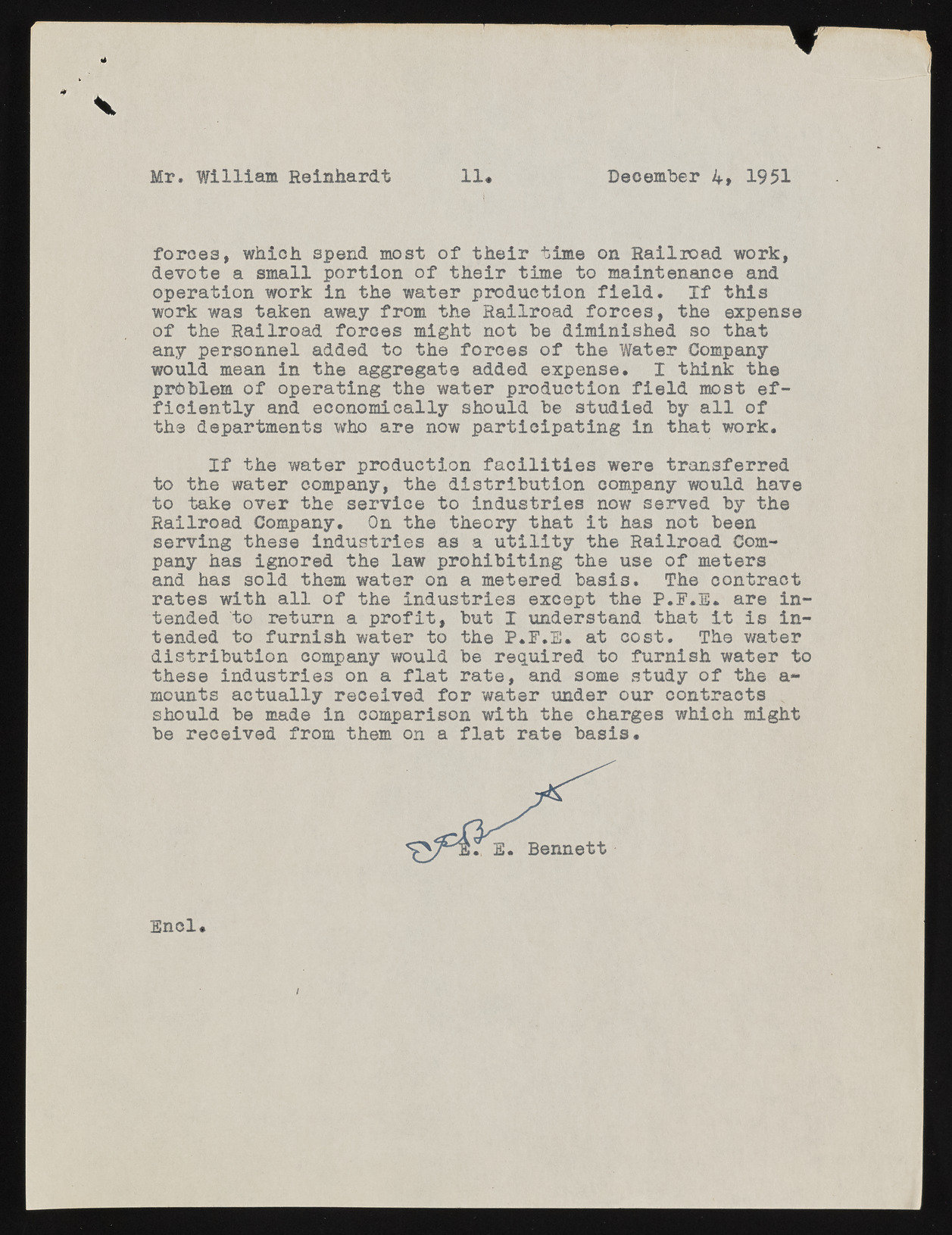Copyright & Fair-use Agreement
UNLV Special Collections provides copies of materials to facilitate private study, scholarship, or research. Material not in the public domain may be used according to fair use of copyrighted materials as defined by copyright law. Please cite us.
Please note that UNLV may not own the copyright to these materials and cannot provide permission to publish or distribute materials when UNLV is not the copyright holder. The user is solely responsible for determining the copyright status of materials and obtaining permission to use material from the copyright holder and for determining whether any permissions relating to any other rights are necessary for the intended use, and for obtaining all required permissions beyond that allowed by fair use.
Read more about our reproduction and use policy.
I agree.Information
Digital ID
Permalink
Details
Member of
More Info
Rights
Digital Provenance
Publisher
Transcription
Mr. William Reinhardt 1 1 . December 4» 1951 forces, which spend most of their time on Railroad work, devote a small portion of their time to maintenance and operation work in the water production field. If this work was taken away from the Railroad forces, the expense of the Railroad forces might not be diminished so that any personnel added to the forces of the Water Company would mean in the aggregate added expense. I think the problem of operating the water production field most efficiently and economically should be studied by all of the departments who are now participating in that work. If the water production facilities were transferred to the water company, the distribution company would have to take over the service to industries now served by the Railroad Company. On the theory that it has not been serving these industries as a utility the Railroad Company has ignored the law prohibiting the use of meters and has sold them water on a metered basis. The contract rates with all of the industries except the P.F.E. are intended to return a profit, but I understand that it is intended to furnish water to the P.F.E. at cost. The water distribution company would be required to furnish water to these industries on a flat rate, and some study of the a-mounts actually received for water under our contracts should be made in comparison with the charges which might be received from them on a flat rate basis. Enel

